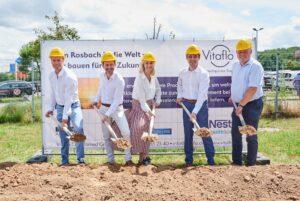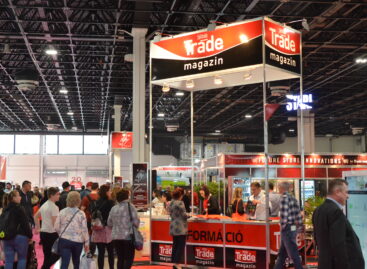Nestlé invests in speciality protein-foods factory in Germany
The site in Rosbach vor der Höhe houses Nestlé’s Vitaflo business.

Nestlé is expanding a plant in Germany dedicated to the manufacture of products for congenital metabolic disorders.
The world’s largest food company broke ground on the project last week and expects to complete building work at the Rosbach vor der Höhe site north of Frankfurt in the spring of next year.
Rosbach vor der Höhe houses Nestlé’s Vitaflo business, which produces the brands Mevalia and Comidamed. Vitaflo, set up in the UK city of Liverpool in 1997 before expanding into Germany in 2007, sits within the Nestlé Health Science division.
Nestlé said the brands Mevalia and Comidamed were acquired by Vitaflo in 2021 and the business employs more than 300 people supplying in excess of 40 countries. More than €8m ($8.6m) is being invested at the Rosbach vor der Höhe facility “to expand and modernise production”.
Production volumes will increase and jobs will be created from the expansion project. Just Food has asked Nestlé for specific details.
Nestlé CEO for Germany, Alexander von Maillot, said in a statement:
“By investing in innovations and using cutting-edge technology, Vitaflo provides pioneering nutritional therapies with clinical, health-economic value in order to improve the quality of life of those affected.
“This is just as important an area of work for us as our classic products from the food retail trade.”
The company described the Mevalia and Comidamed brands as “speciality” and “dietary foods” designed to “improve the lives of people with rare, congenital protein metabolism disorders” such as phenylketonuria. The products are usually prescribed by a doctor, Nestlé said.
It added that one in around 10,000 newborns in Germany is affected by the phenylketonuria disease, requiring a “lifelong adherence to a protein-modified diet”.
Just Food
Related news
Every second German drinks plant-based
🎧 Hallgasd a cikket: Lejátszás Szünet Folytatás Leállítás Nyelv: Auto…
Read more >Lidl is building a new administrative and logistics centre in Straubing
🎧 Hallgasd a cikket: Lejátszás Szünet Folytatás Leállítás Nyelv: Auto…
Read more >Related news
The Store of the Future opens again at the SIRHA Budapest exhibition! (Part 4)
🎧 Hallgasd a cikket: Lejátszás Szünet Folytatás Leállítás Nyelv: Auto…
Read more >Spring whirlwind at the 60th anniversary EuroShop trade fair
🎧 Hallgasd a cikket: Lejátszás Szünet Folytatás Leállítás Nyelv: Auto…
Read more >The economic sentiment index deteriorated in the euro area and the EU in February, but improved in Hungary
🎧 Hallgasd a cikket: Lejátszás Szünet Folytatás Leállítás Nyelv: Auto…
Read more >








